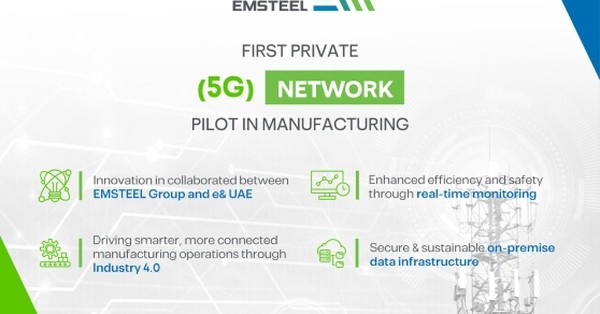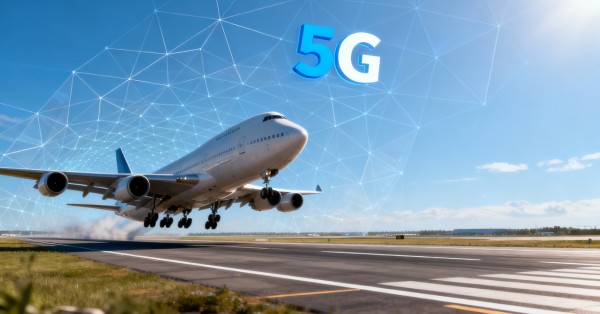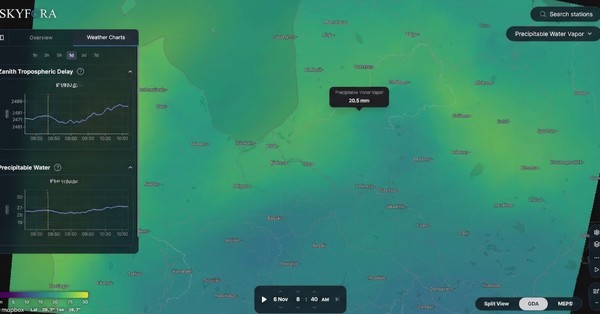Ericsson and Telia have partnered to establish the first enterprise-grade private 5G network in the Baltic region at Ericsson’s Tallinn Supply Site in Estonia. This significant stride is set to propel digital transformation in the area, improving business processes and spurring innovation. The Tallinn Supply Site is vital to Ericsson’s worldwide supply chain, responsible for nearly 50% of its new product launches.
By incorporating Ericsson Private 5G, the manufacturing facility can now foster dynamic product development due to the network’s flexible layout and design. Telia, a forerunner in 5G technology in the Baltic countries, is delighted to be part of this revolutionary project.
The private 5G network’s advanced features – reliability, predictable latency, security, and speed – enable a plethora of applications like asset monitoring and management, digital twins, computer vision, and collaborative robotics. The new feature of precise indoor positioning is also supported by the 5G network.
This latest advancement in the Ericsson and Telia partnership is set to significantly influence the Tallinn Supply Site and Estonia’s export market, both locally and internationally. The Tallinn site plays a crucial role in Ericsson’s global supply chain, accounting for about half of the company’s New Product Introductions (NPIs). These NPIs require extensive R&D to ensure product relevance, competitiveness, and scalability, vital for the successful introduction of new products.
The integration of Ericsson Private 5G throughout the factory significantly decreases wire dependency, enhancing production layout agility while providing better mobility for solutions like automated guided vehicles (AGVs).
Ericsson Private 5G is Ericsson’s advanced private network solution that offers secure and reliable 4G and 5G connectivity through a dual-mode core. It is designed for business operations, pre-integrated to ensure swift utilization, and facilitates advanced and intelligent operations in any environment. It serves as a platform for innovation and Industry 4.0, allowing facilities to modernize work processes.
Andre Visse, CTO of Telia Estonia, emphasizes that the partnership between Telia and Ericsson has spanned decades, witnessing various mobile network generations in Estonia. He stresses that the introduction of new mobile communication technologies is paving the way for Industry 4.0 solutions, leading to a more environmentally friendly and sustainable future.
Sirli Männiksaar, Country Manager of Ericsson Estonia, shares that the implementation of Ericsson Private 5G at their Tallinn Supply Site demonstrates their dedication to connected manufacturing and evolving data-driven technologies. The private 5G network enables advanced use cases, empowering their daily operations.
The newly established network is already significantly impacting the supply site, improving business-critical operations through automation, safety, and agility. It enables monitoring and managing numerous devices in a defined area, offering better coverage with less infrastructure and ensuring seamless connectivity.
Given the projected growth of the worldwide private LTE/5G market, the partnership between Ericsson and Telia is set to bring significant value to customers. By employing advanced 5G private network technology, they are demonstrating their technological leadership and creating opportunities to test new use cases and accelerate industry-wide adoption. This real-world application of the technology provides valuable insights into the best practices for implementing and utilizing 5G private networks.
Starting in 2009, Ericsson initiated manufacturing operations in Estonia. The Tallinn Supply Site of Ericsson currently employs smart manufacturing practices that leverage 5G technology to create and manufacture state-of-the-art 5G products and solutions for worldwide distribution. The primary goal of this approach is to industrialize the Ericsson Radio Systems portfolio. Tallinn is accountable for developing and producing the newest and most innovative products, which are delivered to customers around the globe.







































